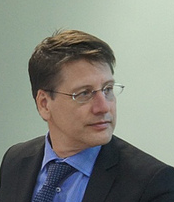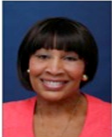HOW HCS CAN HELP YOUR ORGANIZATION
GET YOUR FISH SWIMMING IN THE SAME DIRECTION

Bring everyone working in your organization’s disease state and therapeutic areas up to speed with the latest in clinical therapy, research, regulatory science, epidemiology, patient experience, behavioral science, policy, and markets. Whether you are a pharmaceutical or biotech company, a government department, or venture capital firm — HCS can provide comprehensive education and focus for the disease states that your organization is working to address or learn more about.
CREATE A THINKING GROUP AND AVOID “GROUP THINK”
Providing comprehensive disease state education to staff from different divisions will generate novel ideas and approaches to solving problems and identifying opportunities.
BIOS
Paul Galatowitsch, PhD, Managing Partner, Executive Director

As Executive Director of Health Clear Strategies, Dr. Paul Galatowitsch oversees HCS’ key accounts, manages day to day operations, including curricula development, patient panels, and guiding HCS strategy.
Dr. Galatowitsch’s expertise is focused in the area of institutional and organizational development and analysis. He has worked in the health field for more than 20 years examining the interplay of political, cultural and institutional responses to illness and care delivery in the US and abroad with specific focuses on HIV and viral hepatitis.
Prior to his current role, Paul served as the Director of Clinical education at St. Luke’s Roosevelt’s Center for Comprehensive Care and St. Vincent’s Medical Center. Dr. Galatowitsch received his PhD in in Organizational and Institutional Sociology from Yale University in 1996. Dr. Galatowitsch also serves as an adjunct professor in the School of Public Health at New York Medical College.
http://www.linkedin.com/pub/paul-galatowitsch/14/226/7b7/Monica Sweeney, MD, MPH, FACP

Monica Sweeney, MD, MPH, FACP is HCS’ principal adviser for Medical Affairs and Health Policy and brings extensive local and national hands-on experience to public health and clinical care. From 2007 to 2013 she served as the Assistant Commissioner for HIV/AIDS Prevention and Control at the New York City Department of Health and Mental Hygiene. In this role, Dr. Sweeney oversaw the first effort to estimate HIV incidence – the annual number of new infections in New York City, launched the Bronx Knows HIV Testing Initiative, and managed the expansion of the NYC Condom campaign. As the Department of Health and Mental Hygiene’s Assistant Commissioner for HIV/AIDS Prevention and Control, Dr. Monica Sweeney oversaw a comprehensive effort to improve HIV Prevention, Diagnosis, Care, Treatment, and Case Management; supervised NYC’s the first effort to estimate HIV incidence – the annual number of new infections in New York City – managed the expansion of NYC’s Condom campaign and the launched the Bronx Knows HIV Testing Initiative.
Prior to her role as Assistant Commissioner, Dr. Sweeney served as medical director and then vice president of medical affairs at the Bedford Stuyvesant Family Health Center (FQHC) in Brooklyn, where she oversaw the quality of care for the center as well as provided primary care for 18 years. From 2006-2013 she hosted “HealthBeat Brooklyn”, on Brooklyn Community Access Television, and a weekly radio program on WNYE 91.5 FM, “Living Healthy.” Dr. Sweeney has also appeared in, produced and co-produced numerous health education videos on broadcast media and the world wide web on breast cancer, HIV, weight loss, and wellness.
Dr. Sweeney served as a member of the Presidential Advisory Council on HIV/AIDS, the president of the Kings County Medical Society, and as co-chair of the Physician Prevention Advisory Council, a project of the New York State Health Department’s AIDS Institute. In addition to her role at HCS’ Dr. Sweeney presently serves as an Clinical Assistant Professor, Department of Medicine/College of Medicine at the State University of New York Health Science Center, and an Adjunct Assistant Professor at Columbia University, Mailman School of Public Health.

